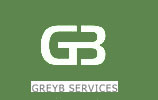Filter interviews by
IPexcel Analytics Manager Interview Questions and Answers
IPexcel Analytics Manager Interview Experiences
1 interview found
I applied via LinkedIn and was interviewed in Jun 2022. There were 3 interview rounds.

(1 Question)
- Q1. Project process explanation, roles and responsibilities, technologies handled, machine learning and AI, scenario based questions
(1 Question)
- Q1. General questions on technology, mentoring and team management
Interview Preparation Tips
Top trending discussions






Interview questions from similar companies

I applied via Company Website and was interviewed in Jun 2024. There were 2 interview rounds.
(2 Questions)
- Q1. Asked about myself and why did I quit my last job
- Q2. About the role and what is expected of me
Just by looking at the data, how can you find the reason of low sales
Interview Preparation Tips


It was a simple test to check your professional behaviour as to what sort of training is required to make you the best applicant/ performer
(2 Questions)
- Q1. Why do you want to join us What is your skillset What are your expectation from Genpact What was your prior experience with other companies Why Genpact
- Ans. Because Genpact is an organisation who does not only hire the best candidates but also hire those who are in the path of becoming professional by providing them certain trainings and groom them so that they become the best employee
- Q2. Because it provides you a very friendly environment and a platform to learn new technologies or softwares
(2 Questions)
- Q1. Salary discussion and your expectation after five years down the line
- Q2. You can say that I am confident thati will perform well day by day and would contribute my skills and knowledge in company's growth
Interview Preparation Tips

I applied via Company Website and was interviewed in Sep 2021. There were 3 interview rounds.
(1 Question)
- Q1. Technical aspects of the job
(2 Questions)
- Q1. More general questions
- Q2. Some hypothetical situation will be given to see your approach
(1 Question)
- Q1. Technical round to see the fit for the required skill.
Interview Preparation Tips
Interviews will test you on technical, functional and behavioral aspects. Focus on your core competency rather than try to cover multiple things.

I applied via Naukri.com and was interviewed in Nov 2024. There was 1 interview round.
(5 Questions)
- Q1. What about your self?
- Q2. Family background
- Q3. Power BI test and advanced excel
- Q4. Microsoft access test
- Q5. Python test and One to one discussion with super boss

(3 Questions)
- Q1. Complex sql question based on lead lag
- Q2. Question based on data index
- Q3. Question based on data engineer

Numpy,pandas,data analysis

Time structure is a part of Environment that used as reference to measure and keep track . The structure of the time also a central . And overall the structure of time remains of the debate.
(1 Question)
- Q1. Data Science and Programming
Mathematics and other questions
Interview Preparation Tips

I applied via Company Website and was interviewed in Jun 2023. There were 3 interview rounds.

An aptitude test is a standardized assessment designed to measure a person's ability or potential to perform specific tasks or acquire certain skills. While the exact details of an aptitude test can vary depending on the purpose and the organization conducting it, here are some common elements and areas that may be covered in an aptitude test:
Numerical Reasoning: This section assesses your ability to work with numbers, perform calculations, interpret data presented in graphs or charts, and solve mathematical problems.
Verbal Reasoning: This section evaluates your language skills, including reading comprehension, vocabulary, grammar, and logical reasoning based on written passages or statements.
Logical Reasoning: This section tests your ability to analyze patterns, sequences, and logical relationships. You may be presented with a series of shapes, symbols, or diagrams and asked to identify the next item in the sequence or identify the pattern.
Abstract Reasoning: This section measures your ability to think conceptually and find relationships between abstract shapes, patterns, or figures.
Spatial Reasoning: This section assesses your ability to mentally manipulate objects in three dimensions, visualize rotations or transformations, and understand spatial relationships.
Data Interpretation: This section evaluates your ability to analyze and interpret data presented in the form of tables, graphs, or charts.
Critical Thinking: This section tests your ability to analyze arguments, identify assumptions, draw conclusions, and evaluate logical validity.
Problem Solving: This section assesses your ability to approach and solve complex problems by breaking them down into smaller steps, identifying relevant information, and applying logical reasoning.
Personality Traits: Some aptitude tests may include personality assessments to evaluate your behavioral preferences, work style, and interpersonal skills.
It's important to note that different organizations may have their own variations and combinations of these sections. The test format can vary as well, including multiple-choice questions, fill-in-the-blank responses, or interactive simulations.
To get more specific details about an aptitude test you're preparing for, it's best to consult the organization or employer conducting the assessment, as they can provide you with the most accurate information and guidance.
A coding test is an assessment designed to evaluate a candidate's programming skills and problem-solving abilities. The details of a coding test can vary depending on the company, position, and programming language or framework being assessed. However, here are some common elements and considerations you might encounter in a coding test:
Programming Languages: The coding test may focus on a specific programming language or allow you to choose from a set of languages. Common choices include Java, Python, C++, JavaScript, or specific frameworks like React or Django.
Test Format: Coding tests can be conducted in different formats. Some companies may provide a set of coding problems or algorithmic challenges that you need to solve within a specific time frame. Others may require you to complete a coding project or build a small application within a given deadline.
Problem Complexity: The coding test may include problems of varying difficulty levels, ranging from basic to advanced. The complexity of the problems can assess your ability to handle different types of challenges and gauge your problem-solving skills.
Problem Domains: The coding test may cover various problem domains, such as data structures, algorithms, string manipulation, mathematical calculations, recursion, dynamic programming, or database operations. The specific domains covered will depend on the job requirements and the company's needs.
Time Constraints: Some coding tests have time limits, meaning you will need to complete the given tasks within a specific timeframe. This is to evaluate your ability to work efficiently and deliver solutions under pressure.
Testing Environment: You may be provided with an online coding platform or an Integrated Development Environment (IDE) where you can write, compile, and run your code. The testing environment may have features like code auto-completion, debugging tools, and test case execution to assist you in coding and testing your solutions.
Test Evaluation: The coding test will typically be evaluated based on the correctness of your code, adherence to given requirements or specifications, code efficiency, readability, and overall quality of your solution. Some tests may also consider factors like code comments, modularity, and error handling.
It's important to note that the specific details and requirements of a coding test can vary significantly from one company to another. If you're preparing for a coding test, it's recommended to review the job description and any provided guidelines thoroughly. Additionally, practicing coding problems, familiarizing yourself with the programming language or framework, and honing your problem-solving skills can greatly enhance your performance in a coding test.
Interview Preparation Tips

I applied via Approached by Company and was interviewed in Aug 2023. There were 3 interview rounds.

(1 Question)
- Q1. All about my previous projects and questions based on that. Also, they checked the knowledge of Generative AI & LLM.
(1 Question)
- Q1. All about my previous projects and questions based on that. It was a techno-managerial round which was also focused on situation based scenarios. Taken by Head of AI/ML - CoE.
IPexcel Interview FAQs
Tell us how to improve this page.
IPexcel Interviews By Designations
Interview Questions for Popular Designations
- Analytics Consultant Interview Questions
- Decision Analytics Associate Interview Questions
- Senior Analytics Consultant Interview Questions
- Analytics Specialist Interview Questions
- Data Scientist Interview Questions
- Senior Data Analyst Interview Questions
- Senior Manager Analytics Interview Questions
- Analytics Executive Interview Questions
- Show more
Analytics Manager Interview Questions from Similar Companies
|
Patent Professional
11
salaries
| ₹3.8 L/yr - ₹10.2 L/yr |
|
Business Development Executive
7
salaries
| ₹3.4 L/yr - ₹5 L/yr |
|
Patent Analyst
6
salaries
| ₹4 L/yr - ₹5.4 L/yr |
|
Analyst
5
salaries
| ₹3 L/yr - ₹5.5 L/yr |
|
Business Development Manager
5
salaries
| ₹5 L/yr - ₹9 L/yr |

Greyb
Gridlogics Technologies

TCS

Accenture
- Home >
- Interviews >
- IPexcel Interview Questions >
- IPexcel Analytics Manager Interview Questions









